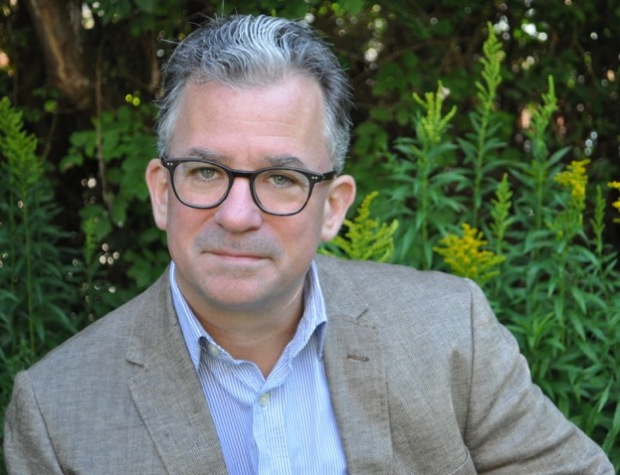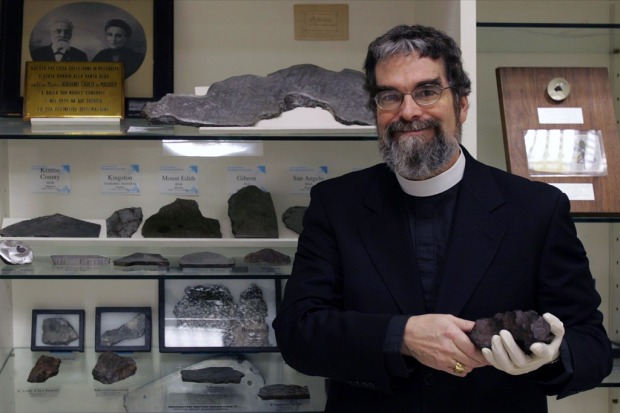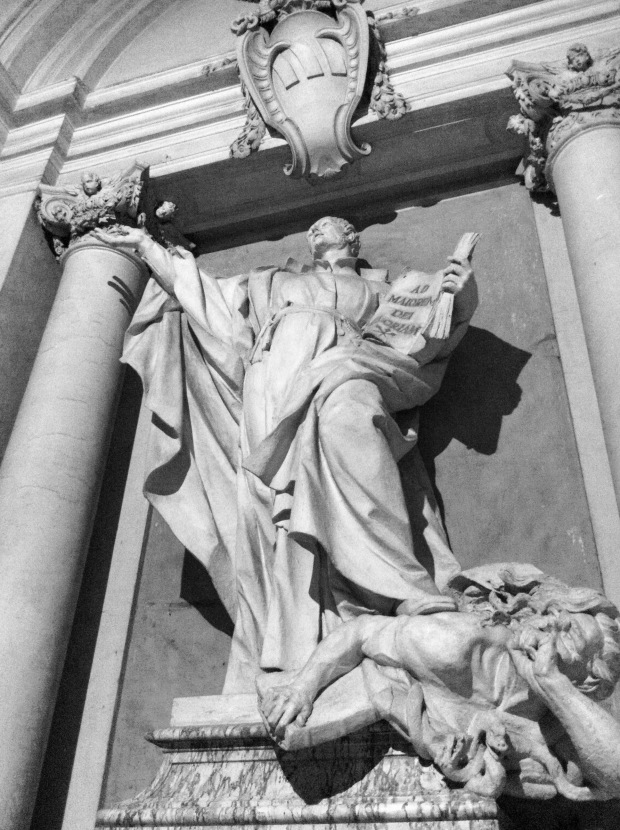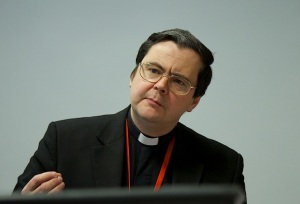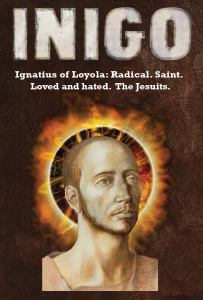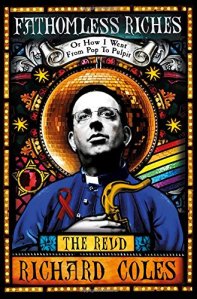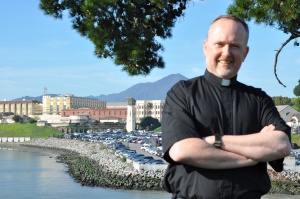
Photo courtesy of George Williams SJ
I first knew of George Williams from the beautiful, shocking article he wrote about prison chaplaincy for The Jesuit Post. I wrote him an enthusiastic email, and he very kindly agreed to speak to me over the phone. NB: This was only the second interview I conducted for Project SJ, and the first with a total stranger, so please excuse any slightly silly questions!
When did you first feel the call to the religious life?
I actually remember it clearly. I was a second lieutenant in the Air Force, and my first assignment was at a Remote Radar station in Alaska. I remember walking down—they call them Arctic Hallways—corridors between the buildings for when it’s too cold to go outside. So I’m on a mountaintop in the middle of nowhere, in Alaska. I still remember walking down this hallway and asking myself: Is this really what I want to do with my life? There must be more to life than this. And at that point I just said to God: Show me what you want me to do. And then, soon thereafter, I met a Jesuit priest who worked in the Native Alaskan villages in the interior of the state. I was impressed with his sense of humour, his devotion to the people he served, and thought to myself, “I’d like to be like him.” That was what prompted me to look into applying to the Society of Jesus.
So the first impulse was to become a Jesuit? That was the first point of contact?
I grew up Catholic, and I knew diocesan priests and liked them, but when I met the Jesuits there was something about them that really resonated with me. I think it was their sense of openness and their sense of humour. I also was impressed with their sense of purpose and mission in life, dedicating themselves to serving God and humanity. So from that point I was really pretty clear about being a Jesuit. I looked into a few others, like the Maryknoll Missioners, because I was interested in missionary work as well.
Did you imagine at that point that you might end up in prison chaplaincy?
No, I had absolutely no idea. Prison work was the last thing I would have been interested in at that time. In fact, I think I would have been horrified by the thought at that time.
So how did you first come into contact with it?
When I was a novice, we did a number of placements in different areas—what they called experiments at the time. Basically you’d get to experiment with different types of ministry.
The idea was to expose ourselves to experiences that would stretch us beyond our usual comfort zones. I read the comments a novice had written a few years earlier when he did a prison ministry ‘experiment’—and it sounded terrifying to me! So I figured it was something I should try to face. I wasn’t expecting to enjoy prison ministry at all. I was surprised, when I first went into the prison, how much I enjoyed the interaction I had with the inmates and with the chaplain, and discovered that I really felt drawn to this ministry. It also seemed to fit what I had been seeking—a way to minister to and with the poor and the marginalised people in our society. And where else but prison can one find such a concentration of poor, rejected and despised people?
Do you feel that your Jesuit identity and spirituality equip you well for this kind of ministry? Is it easier for you in some ways than it might be for a diocesan priest?
It isn’t an either/or. Going to the margins is part of the Jesuit ethos, and the Spiritual Exercises are very useful in my work. But a lot of it’s about personality, and being cut out for prison ministry and attracted to that kind of work. And yet Ignatian spirituality has a lot to offer prisoners. So, while on one level the training I’ve received is very useful, it goes deeper: to charism, and being suited for the job. Ultimately it is a grace—I have met priests and brothers and sisters from many religious communities as well as diocesan priests who were superb prison chaplains. I think prison ministry does speak to the heart of what it means to be a Jesuit, though—in fact, St. Ignatius described ministering to the imprisoned in the founding documents of the Society of Jesus, long before he thought about education and schools. So it is part of our charism.
And you live in community, is that right?
I live at the Berkeley Jesuit School of Theology community, about twenty minutes from San Quentin. I chose to live there because I wanted to invite the lay and Jesuit theology students to San Quentin to do prison ministry. Especially the lay students, because I think that, in this country, that’s the future of prison ministry.
Do you find that living in community gives you a certain strength for your work?
Absolutely. My Jesuit brothers are supportive of my work, and it’s nice to come home to a place where I’ll be around like-minded people. I try not to talk about it too much, though, because people don’t want to talk about serial killers over dinner. It would be hard to go home and be alone to process everything.
I imagine that living in a theology department, around people doing a different sort of work, might also be good in terms of giving you some mental space.
It’s good to be around people who aren’t doing the same thing. The drawback is that I’m around people who teach theology, and that’s pretty much all they talk about. But I find that the students are more open and curious about different kinds of ministry. I think it’s important for them to be considering this kind of work and not focusing solely on academic careers.
It seems quite in keeping with the Jesuit ethos: pushing people a little beyond their boundaries, out of their comfort zone.
I think it’s very important for people in formation, whether lay students or Jesuits, to have the opportunity to do something that’s going to take them beyond their comfort zones.
I’d like to go back to an earlier point: that moment when you were walking along the Arctic Hallway. How would you explain that feeling of being called?
I think it was more of a sense of invitation. It wasn’t like a clear call to “go, become a Jesuit.” I was just asking God for meaning in my life and for his guidance in finding a way to use my life to be of service to others. In a way, it was like asking God to show me the way. And so the sense of calling really played itself out over the next couple of years, as it became more and more clear that that was the direction. It wasn’t like a lightning bolt, it was more like being gently guided toward a new way of living.
I suppose this is what discernment means, isn’t it?
Yes. I guess it started with me asking the question, and then waiting for the answer to become revealed to me in my life.
And how did you imagine that your vocation would play out? Where did you see yourself at the beginning?
Because I had met the first Jesuits in Alaska, who were missionaries for the most part, I imagined myself working in the missions somewhere, either in Alaska or overseas. Because I like to travel, I guessed I’d be a missionary. I saw myself working in places where there was poverty.
What would you say is the driving motivation of your work at San Quentin?
I think there is a sense of a real call to this work, and the overall experience I have is one of gratitude. Every day I go there I am reminded of God’s power: not only at work in my life, but I see it played out in the lives of the men and women I’ve met in prison and through their struggles. There’s just a tremendous feeling of being in the presence of God’s grace, ironically in such an awful place as a prison.
In an article for The Jesuit Post [see header], you wrote about the experience of working within a system you describe as “demonic”, and posed the question of “cooperating with evil”. Could you elaborate on how this question interacts with your faith, and with the connection with the people you meet in prison?
I think it’s a challenge when you work within an institution and are paid by the State. There is an inevitable conflict between our fundamental religious beliefs in the value and dignity of every human person and the dehumanising environment of contemporary American prisons. It seems to come down to the difference between those who believe people are basically good and can always change, and those who believe people are fundamentally flawed and evil and cannot change.
Prison brings out the worst in prisoners, and that doesn’t really make a lot of sense if you really want to rehabilitate people. So what we end up creating are breeding places for cruelty, pain, suffering and anger. They are, in a sense, demonic strongholds in that they model a hellish, hopeless world. The prison system is a reflection of our society’s lack of compassion and also mirror the racism that lies under the surface of our culture. And I think the result of that lack of compassion and that indifference is a lot of people suffering, and it’s unnecessary. In the United States, a lot of what goes on in prisons is a reflection of issues of racism in our culture, because the number of people of colour in our prisons is so disproportionate. So I think that things like racism, sexism and oppression are all played out graphically in the prison system as well.
I suppose that, for the majority of the population, those things are quite literally shut away. They simply don’t see them.
Exactly. I don’t know who said it, but I think it’s true—the opposite of love isn’t hate, the opposite of love is indifference. I think that’s pretty much the public attitude towards the prison system: indifference to what goes on in prisons.
Do you feel that part of your calling is also to communicate that to the outside world: through your work with the theology faculty and through your writing?
Yes. That’s my hope. I may not stay in prisons full-time, but I would certainly like to devote time to use some of my experiences to educate people, not only about what prisons are like, but what our response ought to be as Catholic Christians.
And how do people respond when you tell them what you do?
Often I get asked the question “Why are you in prison?” as if I’m there because of some sort of punishment, or I couldn’t do anything else. And historically, prison has been kind of a dumping ground for dysfunctional clerics and religious. But I see it as a great grace and opportunity. So I think that what people are saying is: “Well, why would anybody choose prison ministry?” Especially if you’re a Jesuit, because you’re smart, and you’re supposed to be teaching at some prestigious college. And that’s fine, if that’s what people feel called to, but I don’t feel called to that. It’s clear to me that my calling is to minister to the imprisoned.
So in a way you’re countercultural, even within the structure of the Catholic church.
I think it’s very much so. Prison ministry is a countercultural statement. Because what we’re saying, against the culture, is that these people have value and the culture’s saying they don’t. And I’m saying that if they don’t have value, then none of us do. I think that each one of those who ends up in prison, no matter what they’re in here for, is valuable and loved by God. Human beings deserve being treated as a human being.
What does the Jesuit identity mean to you?
The Jesuits… we have all kinds of sayings. Ignatius talked about “finding God in all things,” and I really think that the gist of what I feel drawn to in the Jesuit character is that we are able to be men of open minds and critical thinking, to look at the world the way it is and really to engage with it instead of running away from it. It’s about the desire to be in dialogue with the world around us, to engage in the real daily struggles of life here and now. I think it’s about an open-mindedness and an ability to use our education for critical thinking. The Catholic Church has a long history; we’re not a cult… I think our ability to question the things other people aren’t willing to question is attractive, and it’s something that the Church needs. To really be effective in the world today, we have to be able to see where other people are coming from, to engage with them with respect and compasson in dialogue. The desire to use everything that God has given us, whatever talents we have, whatever brains we have, and to give it back to the Church, to God; it’s very noble and it’s incredibly Jesuit.
